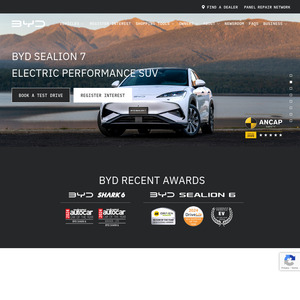[Edit - Just checked back, and this deal now only covers the Shark 6 & Sealion 6, so the below is superseded]
BYD has extended their $5k off the entire BYD range offer to now cover all of July.
https://www.bydauto.co.nz/terms-condition
Prior post is here, can no longer be edited:
https://www.cheapies.nz/node/51811
Wondering if this is the new normal for BYD pricing?
List prices here: https://www.bydauto.co.nz/ (click vehicles and the one you are interested in)
Dealers are already starting to advertise these prices on trade me.
I think their most attractive vehicles are the Seal, Sealion 6 & 7 & Shark 6
Shark 6 at $65k + ORC is especially attractive. This is a 321 kW PHEV AWD ute, with 790kg payload, 2500kg tow rating. 5.7s 0-100 time, 10amp 230v power sockets, 100km EV range on the very easy NEDC test cycle. Kinda massive at 5.457m long.
For comparison the yet to launch Ranger PHEV (much less powerful, and much less EV range, but more payload and tow rating) is prices at: $82,990 PHEV XLT, $89,990 PHEV Wildtrak, and $94,990 PHEV Stormtrack

